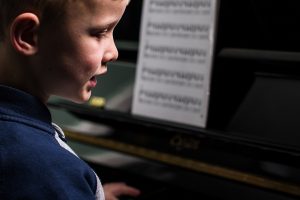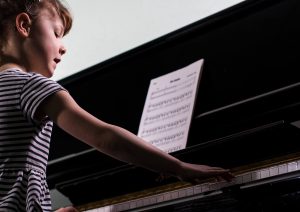Nigel M Taylor, Chair of Trust Music and music education specialist, on the trials and successes of teaching and learning music during the Covid-19 pandemic.
Music Education During a Pandemic
It’s hard to believe that it’s over a year ago since the nation went into its first lockdown in response to the Covid-19 pandemic. March 2020 brought a huge shock to the whole country which has reverberated for many months. As I write this short blog in April 2021, we are slowly emerging from a third lockdown, with a vaccination programme well on course to achieving its target, schools having fully returned, music education finding its feet again, non-essential shops and services re-opening and, despite huge difficulties across most of the rest of the world, an optimism that things might return to some kind of normal later this year.
The question is, to what kind of “normal” shall we eventually return?

Looking back over the last year, and particularly the impact of the pandemic on music education, there is no doubt that many teachers and music services up and down the land have done a miraculous job in transferring some music learning to online platforms such as Zoom, Skype and Teams. In many cases they were able to do it quickly and effectively, and it might be argued that many music services “never closed”. As time has gone on, they have improved their online teaching and learning, revised their schemes of work and widened the scope of their provision. We should congratulate music teachers everywhere for their amazing efforts in trying to ensure that as many young people as possible have been able to continue some kind of music making.
The biggest issues seem to have been four-fold:
- The number of children and young people able to access the online learning programmes; many children have simply not been able to participate either because they don’t have suitable devices, or lack of broadband, or in some cases they have not had the support of parents/carers.
- Whilst some aspects of music learning have transferred successfully to an online medium, some have been much more difficult, mostly around ensemble playing. The available technology is not yet sufficiently advanced or sophisticated enough to allow totally successful real-time playing together, where everyone in a youth orchestra, band or choir can start together, keep together and end together when playing a piece. There have been some remarkable examples of performances produced where individual young people perform and record their individual part (sometimes with a click track) and then they are all edited together as one performance.
- It is arguable that some young people have been able to make good progress during the pandemic, but others (because of their lack of access to online learning) may not have played their instruments, or sung, anywhere near as much, and possibly won’t have made as much progress. There have been some excellent examples of young people showing determination and resilience, but equally there are those for whom their music making has become almost a silence.
- The biggest problem of all has been the lack of regular face to face social interaction – those moments both in and out of rehearsal and performance where young people bond and gel with their peers and share conversations, stories, issues and humour, both musical and non-musical. Many young people have suffered “zoom fatigue” where they just don’t want to look at a screen any longer!
So as we emerge, step by step, into a relaxation of current restrictions let us all hope that schools and music services will again work together closely to put music and the arts into the centre space of children’s learning. There is no doubt that many young people have faced enormous challenges in their lives during this pandemic, and will continue to do so in the future. Some will have reported difficult mental health issues; there are probably many more who will do so.
There has been a lot of talk in the press and media about ensuring that children “catch-up” their “lost” learning. And whilst there are arguments on all sides what this means, and how to go about it, I would strongly argue that schools and music education professionals should do all they can to support young people’s mental and emotional well-being first and foremost – including a rich diet of music and the arts in and out of schools – to underpin any academic “catch-up”.
To repeat the question, to what kind of “normal” shall we eventually return?
Whatever we return to, I hope it’s a new era of inclusiveness where all children and young people can access and experience high quality music learning, rich in creative, artistic and collaborative opportunities to enable them to embark on musical journeys that make them feel good about themselves, feel good about music, feel good about their friends and families and teachers, and feel good about life and the future.
